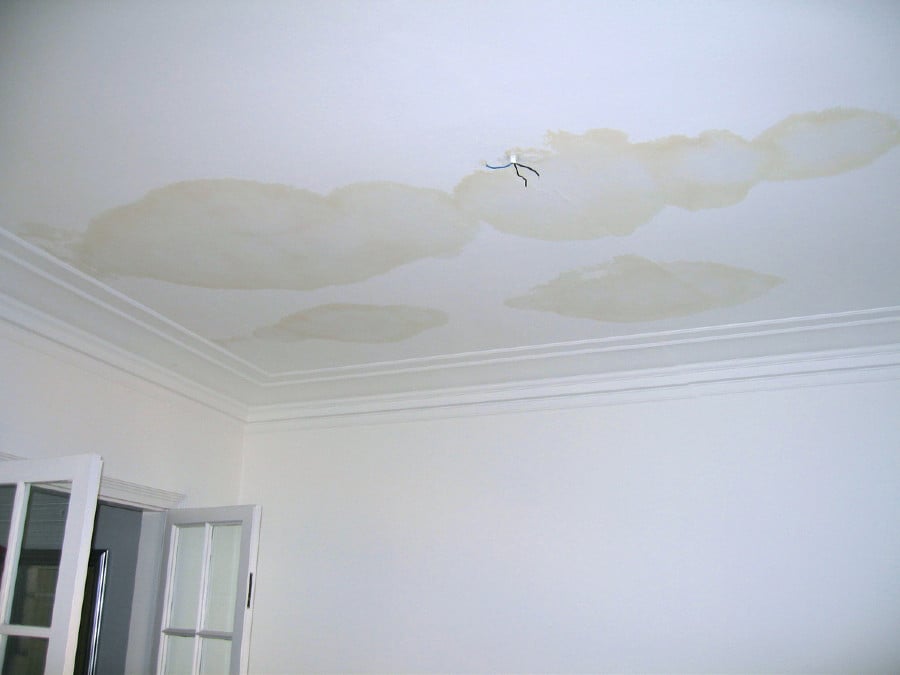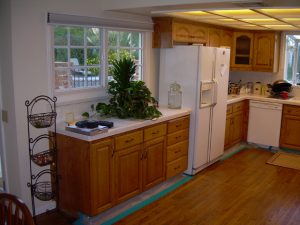Schedule A Service
They are making a number of great observations related to Most Common Causes of Residential Water Damage overall in this content followed below.

The cooking area is the area where a great deal of water task goes on. You can hardly do anything without using water in the kitchen, from cooking, cleaning, as well as doing the dishes.
Hence, examining your kitchen area once in a while is a need. This is due to the fact that it has a higher chance of getting water damage as a result of the devices you utilize there.
When damaged, these devices that regulate water might make your kitchen area messy and also influence the framework of your building in the future.
So, allow's take a look at some root causes of the water damage in the kitchen and what you must watch out for.
Some Root Causes Of Water Damages in the Cooking area
These are a few causes of water damage in the kitchen area.
Faulty Drain Piping
Drain pipes Pipelines are needed parts of our houses, specifically in our bathrooms and also kitchen areas. Nevertheless, they get damaged by obtaining blocked, split, and ruptured. Or even worse, they can be wrongly or loosely attached; whichever the situation might be, it can be a serious trouble.
Faulty drainpipe pipelines can trigger water damage and also, because of this, cause mold development and damage the appearance of your wall. It can additionally make the affected location look unpleasant.
Consequently, it is recommended constantly to inspect to make certain that all the pipes remain in good condition and obtain a sound plumbing system to keep as well as deal with any problems.
Faulty Cooking Area Sink
The kitchen sink is a crucial and also many utilized part of the kitchen. Thus it is prone to water damage; problems such as blocked pipes, dripping pipelines, and malfunctioning faucets.
These damages can be annoying, especially when one is hectic in the cooking area. It doesn't simply take place without giving an indication or an idea. Right here are some indicators to know when your sink is not alright
So, these are the major damages that can happen to your kitchen area sink. One method to stop this damage is by making certain that food fragments do not get into the pipelines. You are additionally inspecting the pipes as well as faucets as well as guaranteeing that it is correctly fixed and also in good condition.
Leaking Dishwasher
Dishwashers make life in the cooking area simpler. However, it is an optional cooking area home appliance as well as, when available, can be a resource of water damage. On top of that, like other machines, it will certainly establish faults with time, despite maintenance.
Among the faults is dripping with the door or under the dishwashing machine. These faults create because of age, splits, wrong use, loose web links to pipes, and so on.
Faults as a result of age originated from constant use. Because of this, the door leaks because of shutting and also opening up.
Also, mistakes from the wrong use may create water damage by introducing cracks to it. It is suggested to adhere to the hands-on overview of the dishwasher to stop this particular damage.
The leakages under the dish washer can come from splits in the gasket, hose, as well as incorrect or loosened connection to pipes or drains.
This sort of leak typically goes undetected and can be there for a long time. Due to the time frame, it might cause as well as harm the flooring mold and mildew development.
Extra so, the longer the water stays, you will observe the bending of the flooring where the dishwasher is. When examining if your dish washer leakages, this is an excellent indicator to look out for. Spotting and repairing this promptly prevents serious water damage to your flooring.
Profits
Looking out for problems in your kitchen area can be entrusting but necessary. It makes your work there simpler as well as much safer.
Nevertheless, the reasons provided above are just a couple of variables to take into consideration, specifically if your cooking area has a great deal of devices.
Get a professional plumbing solution to come around and check for any damages and also obtain them taken care of.
It makes your kitchen area unpleasant and also damp, particularly when dripping from the pipes. And also if it is trickling from the tap, it leads to water waste.
It is an optional cooking area home appliance and, when available, can be a resource of water damage. A lot more so, the longer the water stays, you will see the bending of the flooring where the dishwasher is. Spotting and also repairing this on time prevents serious water damage to your floor covering.
WAYS TO PROTECT YOUR KITCHEN FROM WATER DAMAGE
The kitchen is one of the most significant rooms in your house, as it is a multipurpose room wherein you can do your cooking and cleaning. Nowadays, homeowners tend to ignore the problems under their sink or appliances because of their busy schedules. However, most household floods occur due to plumbing and appliance failure. One of the most common scenarios that cause water damage to your kitchen is when the dishwasher malfunctions and floods gallons of water.
Water damage in your kitchen can cause several problems, including cosmetic damage, mold growth, and even an unpleasant smell. Often, if you fail to neglect the problem, there are always consequences. This article will help you protect your kitchen from water damage.
Common Causes of Water damage in your kitchen
Pipe problems are the most common source of water leaks under your sink. If homeowners ignore this issue, it will burst and flood the kitchen. Dishwasher leaks can be a source of water damage in your kitchen. An old, broken, and defective dishwasher can cause leaks, damage to your floor, and even mold growth. Refrigerator leaks can cause water damage in your kitchen, as sometimes melted ice from defrosting can cause leaks. Furthermore, if your refrigerator has internal problems, it is very likely to cause water damage. Back-splash and sink caulking can cause discoloration and water damage to your countertop tiles. Ways to Protect Your Kitchen From Water Damage
Regular maintenance
The most important thing you can do to protect your kitchen from water damage is to inspect the sinks, drains, and pipes, as well as the kitchen appliances, regularly. As with the sink, check for missing or deteriorated caulk. Remove the old caulk and clean the area thoroughly and re-seal it with fresh silicone. Furthermore, sweep the drain regularly, empty the filter and dispose of the debris in the garbage, and inspect the supply lines and valve for cracks.
Check your appliances
Check the user’s manual for instruction and proper use of every water-related appliance installed in your kitchen. For the dishwasher, check this procedure to prevent the dishwasher from flooding your kitchen. Check the appliances that need water, such as the coffee maker, ice maker, and water cooler, as they can become the cause of water damage in your kitchen. You may call a professional to check and repair damaged appliances and professional restoration for water damage clean-up.
Garbage clean-up
Fats, oil, and grease are common in the kitchen. Pouring them down the drain can cause clogs and sewage backup, which may result in significant kitchen water damage. If your kitchen sink is clogged, use a solution of hot water, baking soda, and vinegar to unclog the fats and oils in the pipes. Also, make sure to throw out the debris in the trash and clean the sink properly using paper towels for greases and oil and soap or bleach solution for the sink itself.
Shut off your water line
Make sure to shut off your main water line, especially if you're away and having some flood issue. As mentioned, dishwasher leaks are one of the most common culprits of water damage in the kitchen. So, make sure to only use the dishwasher if someone is at home and available to attend in case a problem arises.
Furthermore, it is also important that every member of your household knows where the shut-off valves are located. So in case of an emergency, they can mitigate the damage by turning off the water source.
Install leak detectors
One of the best ways to catch water damage before it could even cause serious damage to your home or business is by installing a water or leak detector. A leak detector monitors the flow of water through a pipeline, can detect moisture in the air for molds, and tracks the water temperature. Also, it can shut off your water line in case of an emergency. Install leak detectors under the kitchen sink, near the dishwasher and refrigerator.
https://superiorrestore.com/7-ways-to-protect-your-kitchen-from-water-damage/

I'm very occupied with How To Prevent Water Damage To Your Kitchen and I really hope you appreciated my page. Appreciated our review? Please share it. Let someone else discover it. I appreciate reading our article about Causes of Water Damage in Kitchen.
Visit Our Website